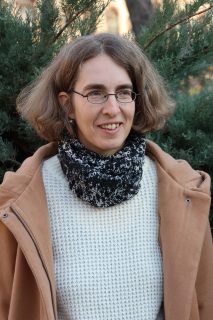Dr. Erzsébet Gere Pásztiné, Senior Scientific Researcher at the Department of Pharmacology and Toxicology, deliberately chose her academic path. Biology, chemistry, English, and German — an ideal combination for a research career. She plays a multifaceted role in English-language education, has undertaken study visits to the United States and Germany, yet she feels that even at István Street, she remains connected to the global scientific community. She has applied analytical-biochemical methods developed to counteract oxidative stress to address another biological problem. Currently, she is researching antiviral agents, exploring the potential use of known active substances for new therapeutic indications. Below is an excerpt from the interview.
 I began my studies in Szolnok at the “red school” near József Attila Street, where I grew to love mathematics and chemistry. Since natural sciences were not traditionally seen as “feminine” fields, I pursued an English-German specialization at Verseghy High School. However, I always knew that I would make a career in biology and chemistry. After high school, I applied to the Faculty of Pharmacy in Szeged, where I also completed a degree in English-Hungarian translation. Knowing languages also shapes your perspective and way of thinking. A nation’s language reflects what is important to its people. It’s also interesting to observe how native German-speaking students write in English.
I began my studies in Szolnok at the “red school” near József Attila Street, where I grew to love mathematics and chemistry. Since natural sciences were not traditionally seen as “feminine” fields, I pursued an English-German specialization at Verseghy High School. However, I always knew that I would make a career in biology and chemistry. After high school, I applied to the Faculty of Pharmacy in Szeged, where I also completed a degree in English-Hungarian translation. Knowing languages also shapes your perspective and way of thinking. A nation’s language reflects what is important to its people. It’s also interesting to observe how native German-speaking students write in English.
After working at the Chemical Research Centre (now the HUN-REN Research Centre for Natural Sciences, TTK), why did you choose the University of Veterinary Medicine?
Because this university ranks among the global leaders in scientific research. Pharmacology is a multidisciplinary field that fosters strong collaboration between pharmacy, human medicine, and veterinary medicine. I experimented with protective agents, such as probiotics, to mitigate oxidative stress driven by psychostimulant-induced dopamine release and intestinal epithelial damage. I also adapted bioanalytical methods for addressing various biological problems. At TTK, my work was supervised by Dr. Judit Jakus, while my PhD dissertation was overseen by Professor Péter Gálfi. Both of them initiated excellent projects in oxidative stress research. Professor Gálfi gave me the independence to work freely, providing the creative space I needed to develop my ideas, which greatly contributed to my professional growth.
How would you summarize your current research?
I focus on antiviral drugs. While such medications already exist, there is a clear need for more effective active substances with fewer side effects. One emerging therapeutic approach is the development of enzyme inhibitors targeting glycoprotein-containing viruses, such as influenza and coronavirus. These inhibitors prevent the activation of viral glycoproteins. If the host organism cannot cleave either the spike protein or hemagglutinin, the virus cannot spread and cause infection. Interestingly, a similar toxin activation mechanism is present in certain bacteria as well. This means that an antiviral drug could also be used as an antibacterial agent. The mechanism is particularly promising since bacteria have not yet developed resistance against such compounds because they have never been used as antibiotics before.
That’s fantastic!
One of the wonders of pharmacology is discovering how a given mechanism can be exploited across multiple fields — how a single active substance can have multiple therapeutic indications. Whether it’s a viral infection or a bacterial disease, the same approach can be applied.
Is it important to incorporate research findings into education?
Absolutely! At the Department of Pharmacology and Toxicology, our research findings become an integral part of teaching. There are many reasons for this, but I would highlight that it enhances our credibility when we ourselves are part of the knowledge we teach. Education cannot exist without research. We pass on our findings with the confidence that no one else has documented them before, and we encourage students to engage in research, urging them not to hesitate to apply.
What would be the ultimate achievement for you?
What brings me joy is discovering something entirely new — being the first to see it and embarking on a path that raises even more questions. The ultimate driving force in my work is find out if there is another solution or another problem to solve. As long as there is, I will continue my research.
Gusztáv Balázs
